Neck pain is just that — a pain in the neck. It’s rare that neck pain is a sign of serious complications, but when you experience ongoing neck pain, Charleston is the best place for you. Go see one of our spinal doctors at the Southeastern Spine Institute. They’ll be able to find the source of the problem and get you on your way to recovery.
Neck pain typically results from:
- Strain from sitting over a keyboard all day or hunching over a steering wheel
- Poor posture while sitting, driving and standing
- Arthritis
- Keeping your head in one position for too long
- Improper support while sleeping
Easy Remedies
When your SSI doctor clears you of any serious complications, there are a number of home remedies you can rely on to ease neck pain. Charleston or anywhere you are, you can reduce the pain caused by the activities of daily life.
- Stretch your neck from side to side. Avoid bouncing and instead, stretch as far as you can to one side and hold it for 30 seconds. Bend to the other side and repeat. Do the same routine to stretch your neck forward and backward.
- Relax aggravated muscles with heat. Let the water run over your sore neck while taking a hot shower.
- Cold compresses are better if you’re experiencing inflammation. Wrap an icepack in a towel and hold it on your neck for about 20 minutes a couple times a day.
- Lie down and give your neck a break from working so hard to hold up your head. Keep naps short though, because too much inactivity can lead to a stiff neck.
More Serious Conditions
When that pain in the neck haunts you day after day and no amount of rest, stretching or alternating heat and cold gives you relief, you may be undergoing a more serious complication. Chronic neck pain can occur as result of a number of conditions:
- A pinched nerve, often referred to as a herniated disc or bulging disc, causes radiating pain from your neck through your arm to your fingers. You may experience numbness or tingling in your hands. This kind of neck pain often is temporary and responds well to conservative treatments, always the first choice by Southeastern Spine Institute doctors.
- Cervical spinal stenosis is a condition that usually develops slowly over years and typically flares up after you do certain activities or following long periods of time in one position. Cervical stenosis usually is associated with aging; it causes pain because of the wear and tear after years of movement.
- Myelopathy is a condition that occurs when you have neck pain; Charleston doctors also ask about coordination problems with your arms. Pressure on the spinal column from a herniated disc or degenerative processes usually is the culprit. You can go years without any symptoms, experience flare-ups and then go longer with no pain or coordination difficulties. The pain in your neck typically responds to conservative treatments, but myelopathy almost always ends up requiring surgery to fix.
- Degenerative disc disease is a condition many people experience as they age. Those jelly-like discs that keep your vertebrae from rubbing against each other eventually wear away. When it happens in your cervical spine, you end up with neck pain. Charleston spinal doctors advise adjusting your activities to prevent pain as the best course of action.
- Neck arthritis typically is the diagnosis when your neck pain is at its worse first thing in the morning and at night. Exercise and manipulation often help to remedy the neck pain associated with arthritis.
Lifestyle adjustments often are the best way to reduce the pains in your neck. Simple steps such as setting up your desk with ergonomic equipment, taking frequent breaks, stretching and strengthening your core muscles will help you keep your cervical spine healthy. Neck pain (Charleston or anywhere) often is avoided with proper posture at all times — while standing, sitting, driving, sleeping and fishing.
